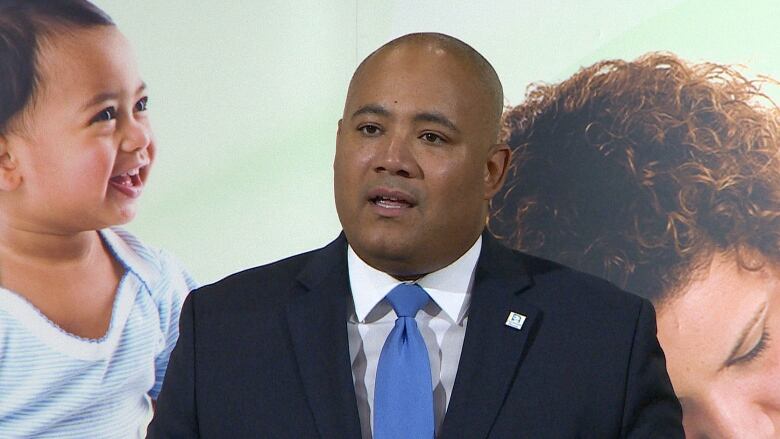New autism program coming to Ontario; practitioners to be regulated
There are an estimated 40,000 children on the autism spectrum in Ontario

Ontario is announcing the launch of its new autism program Thursday, which is expected to go much more smoothly than the Liberal government's last attempt that angered thousands of families and spawned large protests.
Children will begin moving into the new program June 26, Ontario's minister for children and youth services is set to announce. Unlike the bungled rollout last year, intensive therapy will not be limited to children under five as the government works toward fully implementing the program by the spring of 2018.
The key difference this time around is families and advocates were involved in the process of developing the program, said Ontario Autism Coalition president Bruce McIntosh.
"That's probably the single biggest factor," said McIntosh, who added that the new program includes many elements families have been urging for 12 years.
"Twelve years is a hell of a long time to be yelling about something," he said.
The new program will not be limited by severity of diagnosis, so intensive services will be available to kids anywhere on the spectrum, if needed.
"When the minister announces severity will not be a criteria, that's a big deal because there were kids who were rejected or kicked out of the program in (previous) days because of those totally artificial criteria," McIntosh said. "All you need is a diagnosis. That's it and that's huge. That's huge for the parent community."
Practitioners to be regulated
Minister Michael Coteau is also set to announce that applied behavioural analysis practitioners will be regulated, The Canadian Press has learned.
That will help ensure that high-quality services are provided by qualified professionals, said the president of the Ontario Association for Behaviour Analysis.
"Ontario's behaviour analysts are optimistic about the impact this commitment can have on the lives of individuals receiving behaviour analytic services," Louis Busch said in a statement.
The positive reception is in stark contrast to last year, when the government announced that a new autism program would do away with the distinctions between Intensive Behavioural Intervention and Applied Behaviour Analysis and blend them into a service that would tailor the intensity of therapy to a child's individual needs.
That program was not due to roll out for two years and in the meantime the government said it would stop funding IBI for kids over four, giving families of kids removed from the IBI wait list $8,000 to pay for private therapy during the transition.
The backlash from parents was swift and sustained. Hundreds of children had spent two or three years on the IBI wait list, only to be abruptly removed and given an amount of money that would only pay for, at most, a few months of therapy.
The previous minister was canned and mere weeks after getting the job, Coteau announced those families would get successive payments of $10,000 for private therapy until the new program was up and running, and the start date for the program was moved up to 2017.
Estimated 40,000 children on autism spectrum
The newly designed $533-million Ontario Autism Program still does away with the distinctions between ABA and IBI, but it will be open to all children under 18 with a diagnosis anywhere on the autism spectrum. There are an estimated 40,000 children and youth in Ontario on the autism spectrum.
A 1-800 number will provide a single point of contact for information and referral, and each family will have a service co-ordinator and will get a family services plan that will be updated based on need.
The program will also include a direct funding option, which allows families to either receive funding to pay for private therapy or use government-funded services.
Officials are also designing a review mechanism, so that families can challenge a treatment decision.












_(720p).jpg)


 OFFICIAL HD MUSIC VIDEO.jpg)
.jpg)



























































































